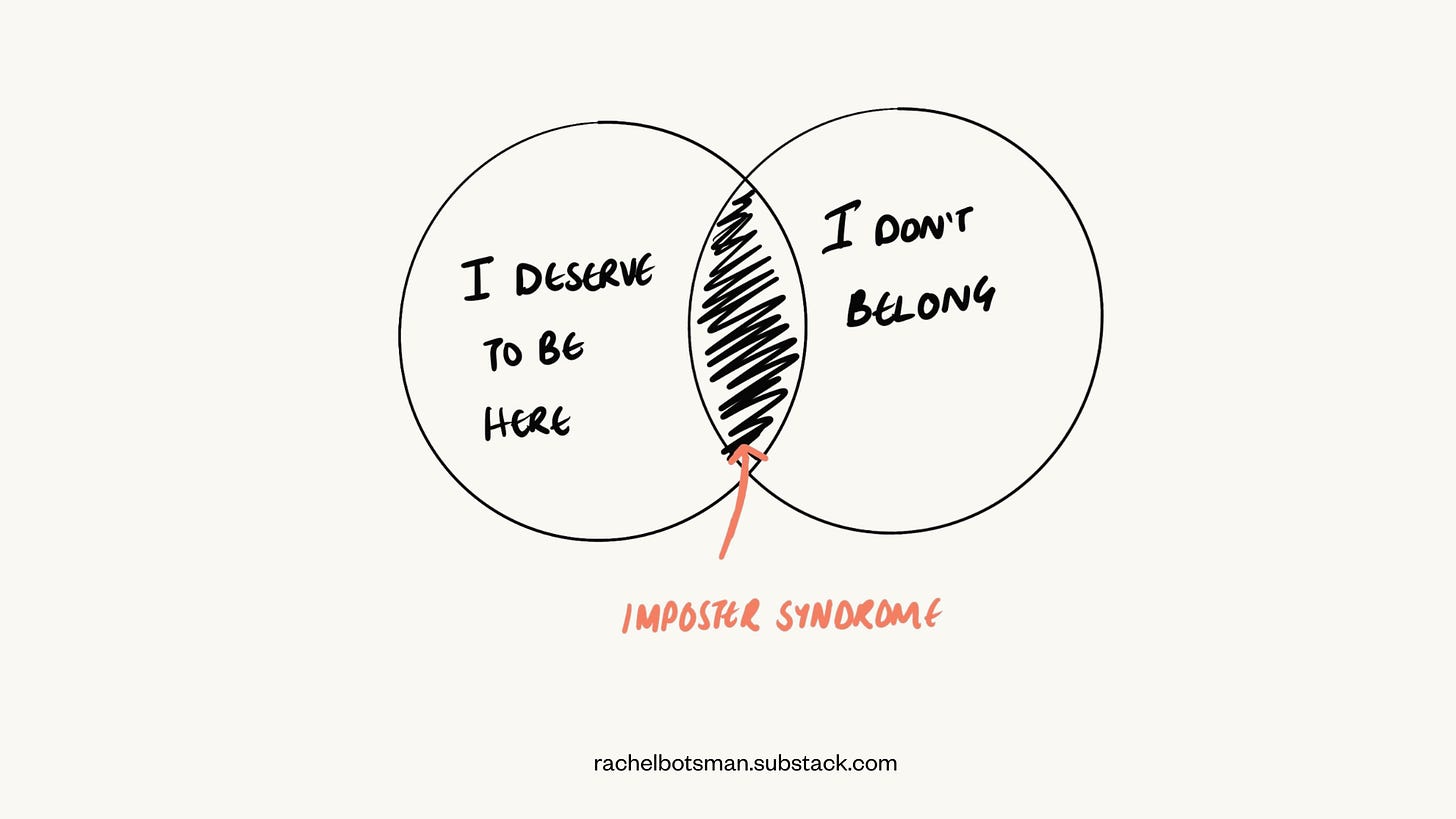Why feeling like a fraud can be a good thing
If you suffer from imposter syndrome, read on
Maya Angelou, a literary legend, talked about the imposter feelings she experienced each time she published a book. “I have written eleven books, but each time I think, ‘Uh oh, they’re going to find out now. I’ve run a game on everybody and they’re going to find me out.’”
Angelou was nominated for the Pulitzer Prize and won five Grammys (plus numerous other awards), yet she still had the feeling that, deep down, she didn’t have a clue what she was doing. Have you felt the same? I have.
This week’s newsletter is on the “imposter phenomenon” and why it can plague us at work at the strangest time. Is doubting our abilities always a bad thing?
More on the topic of imposter syndrome after a quick Rethink recap from last week:
I finished my studies in landscape design and presented my final project at Kew Gardens! It’s partly what inspired the topic of this week’s newsletter.
I read a great book called The Portfolio Life by
. If you’re looking for a different relationship to work but are not quite sure what that looks like, then it’s a very useful read.- wrote an astute piece this week for her newsletter Culture Study that made me think differently about workplace disengagement.
Thanks to all readers that have upgraded their membership to paid. Your support means a lot to me.
Fear of being found out
The concept of “imposter syndrome” was first coined by two psychologists, Pauline Rose Clance and Suzanne Imes, in 1978. Initially, it was believed to only affect high-achieving professional women.
“Women who experience the imposter phenomenon persist in believing that they are really not bright and have fooled anyone who thinks otherwise,” wrote Clance and Imes.
But feeling like an imposter is not restricted to successful women. There is a great article in the Harvard Business Review about why we need to stop giving imposter syndrome as a diagnosis just to women who doubt their abilities.
Research has found that more than 70% of people will experience imposter thoughts at some point in their lives. (And maybe the other 30% are too scared to admit it.)
Imposter syndrome bubbles up as an annoying voice in different ways:
“They figured it out, and will take it all away.”
“I didn’t deserve this job, award, promotion, seat at the table, fill in the blank___.”
“I feel guilty about my success.”
“Other people overestimate my abilities.”
“When will they find out I’ve tricked everyone and I’m a phony?”
Imposter thoughts happen when we fail to internalize our talents and successes. My imposter's voice never mutters, “Well done me,” but loves to rise up and say “Phew. Got away with it, again.”
Distrusting your success
At the heart of feeling like an imposter is a persistent, nagging fear of being exposed or evaluated. Mark Leary, a personality psychologist, defines three key attributes that makeup imposter syndrome:
You feel like a fraud
You fear being discovered
You constantly undermine your experience, expertise, or success
At the heart of imposter syndrome, is an inclination to distrust your success.
People who suffer badly from imposter syndrome often attribute their achievements to external factors such as luck or fortunate circumstances. It’s easy to see why imposter syndrome has long been perceived as harmful to personal success and robbing us of the joy of our achievements.
After the jump…more insight for paying subscribers on the unexpected benefits of doubting your own competence and why imposter syndrome is often instructive. Plus links to some useful resources to go deeper into this topic.



